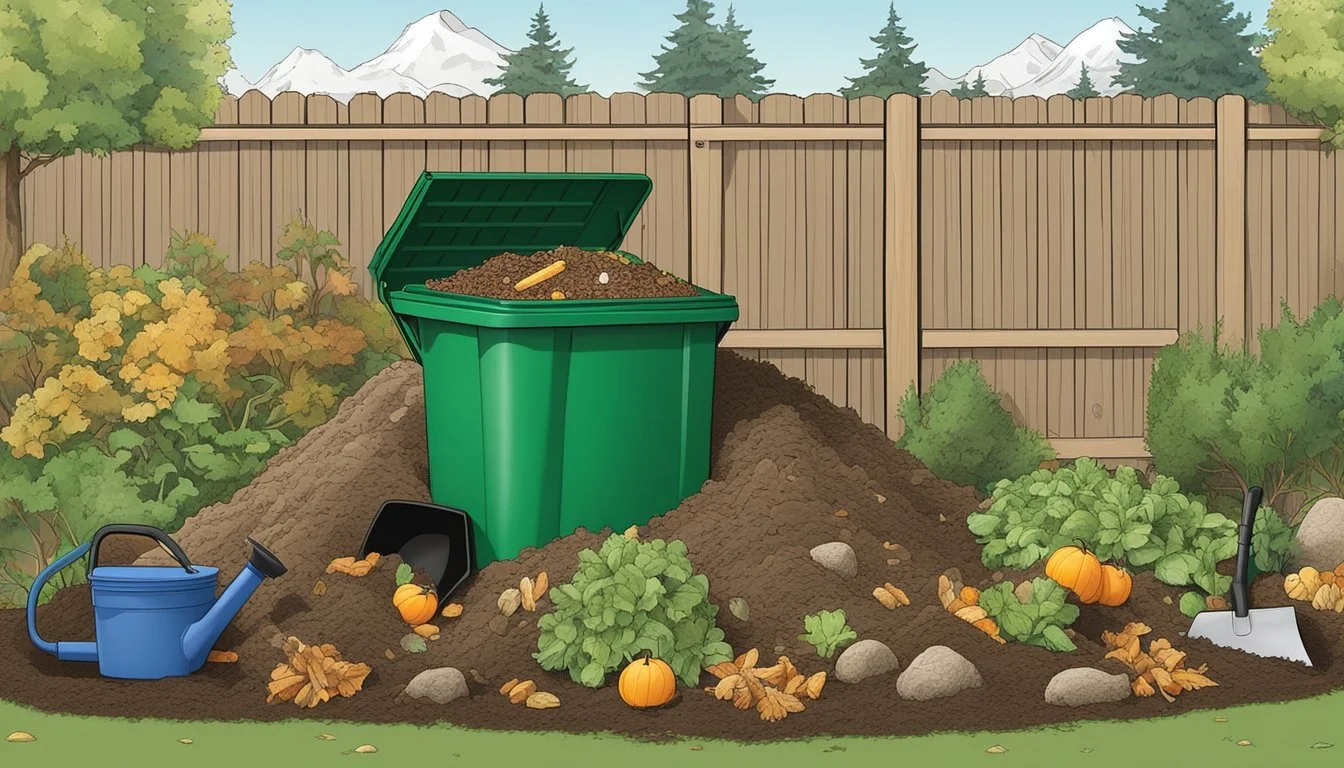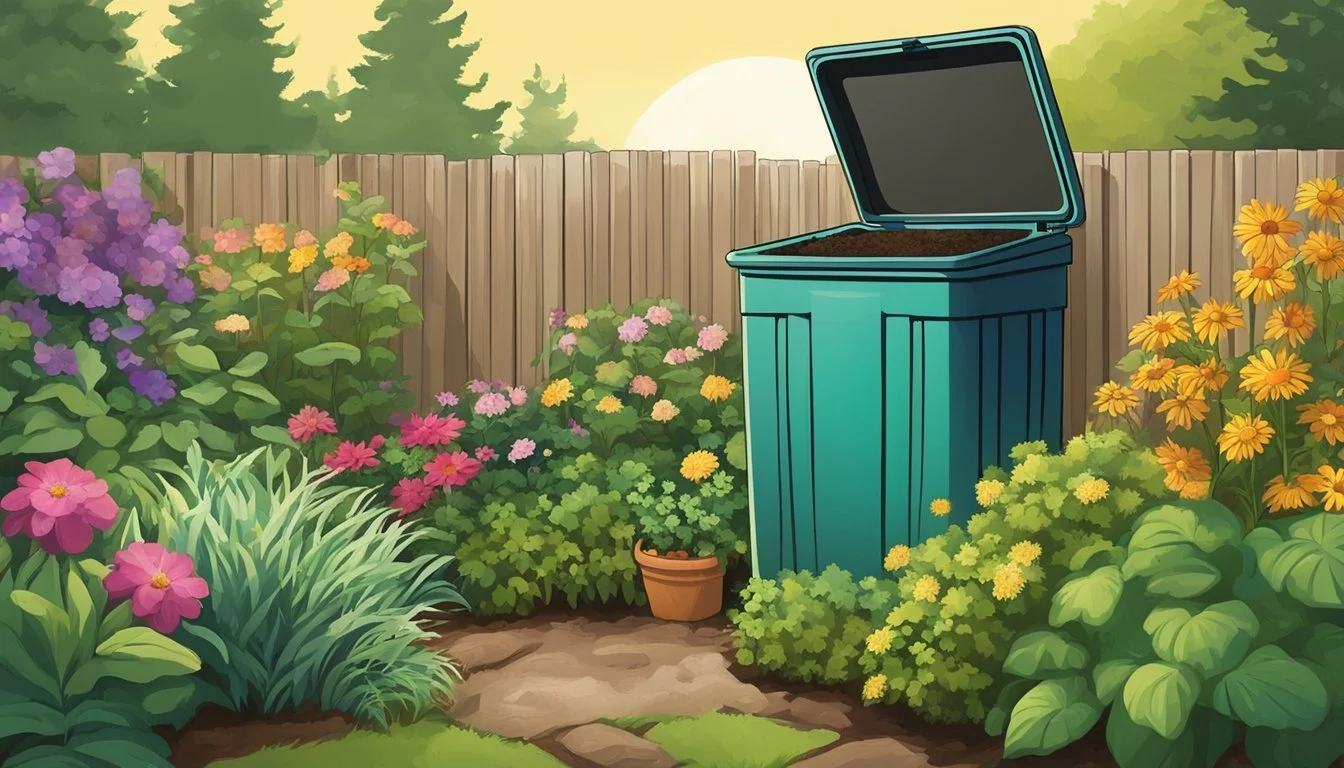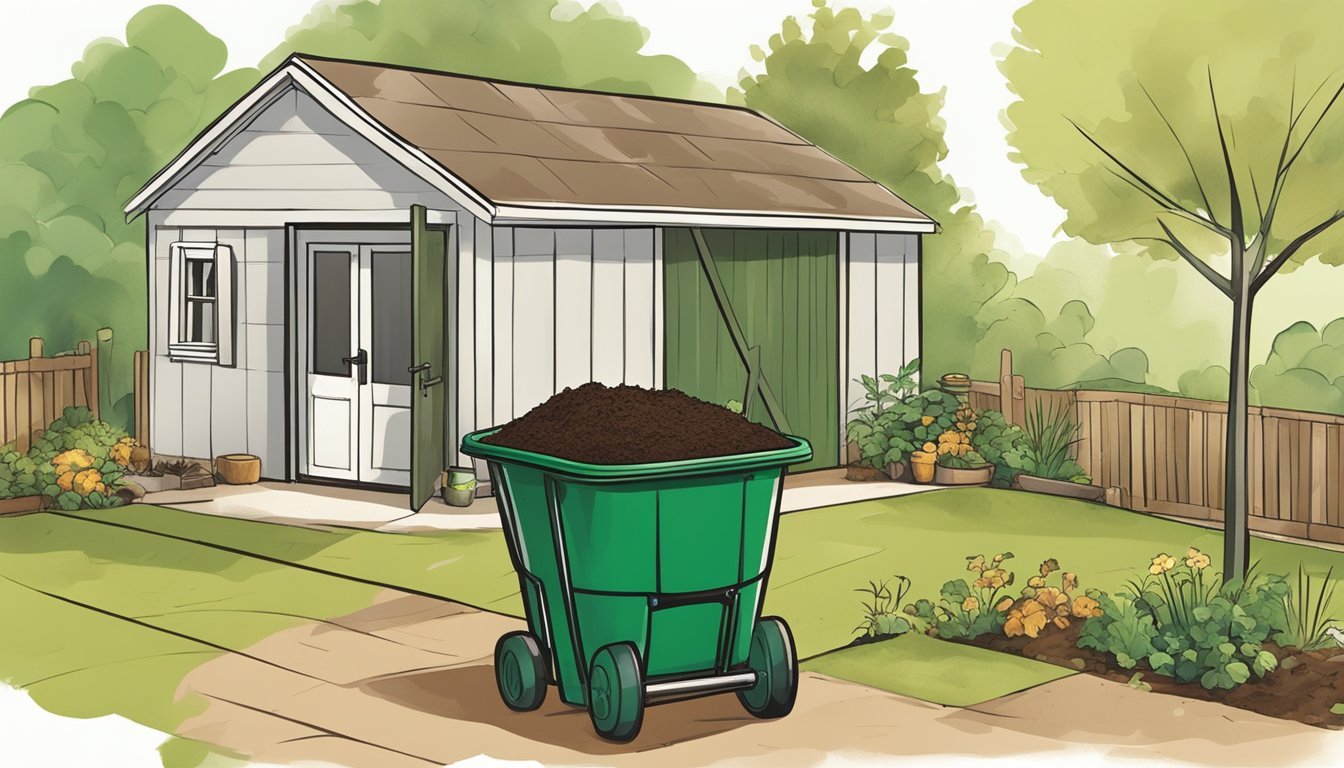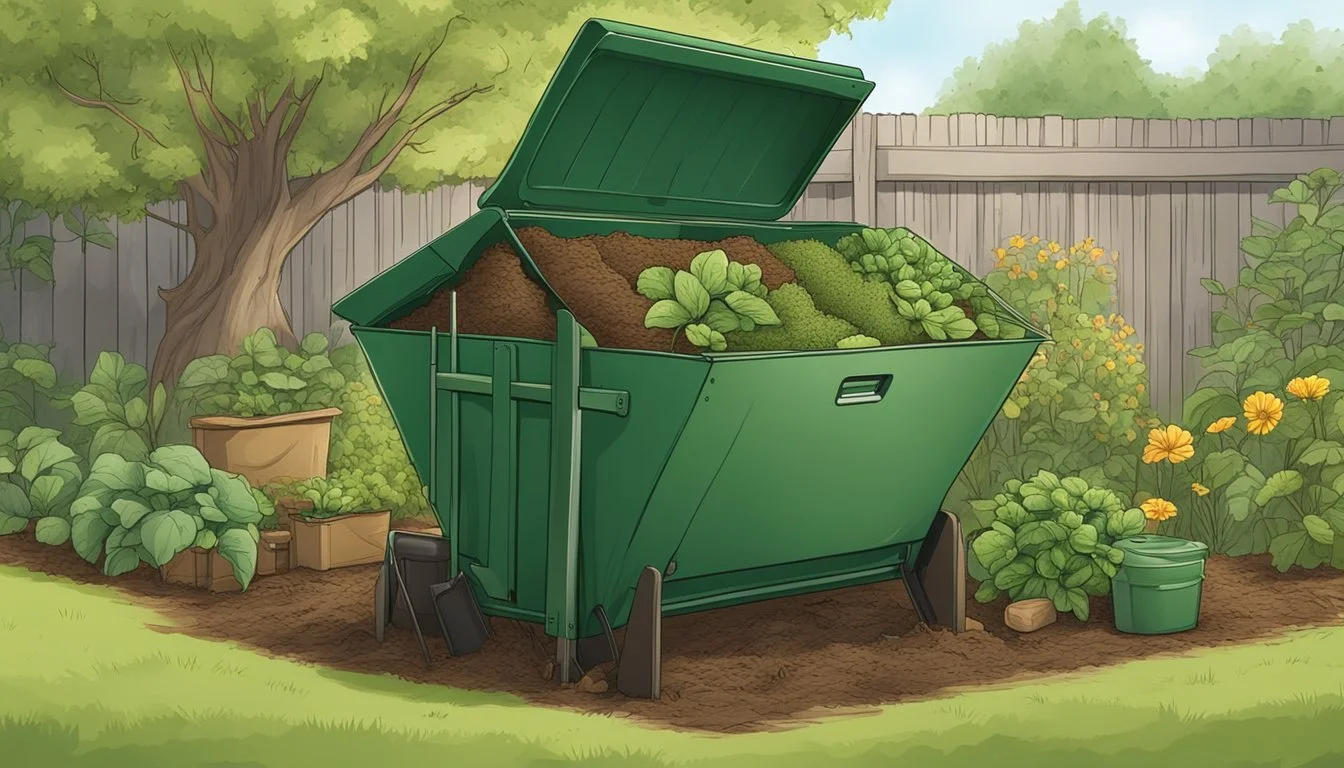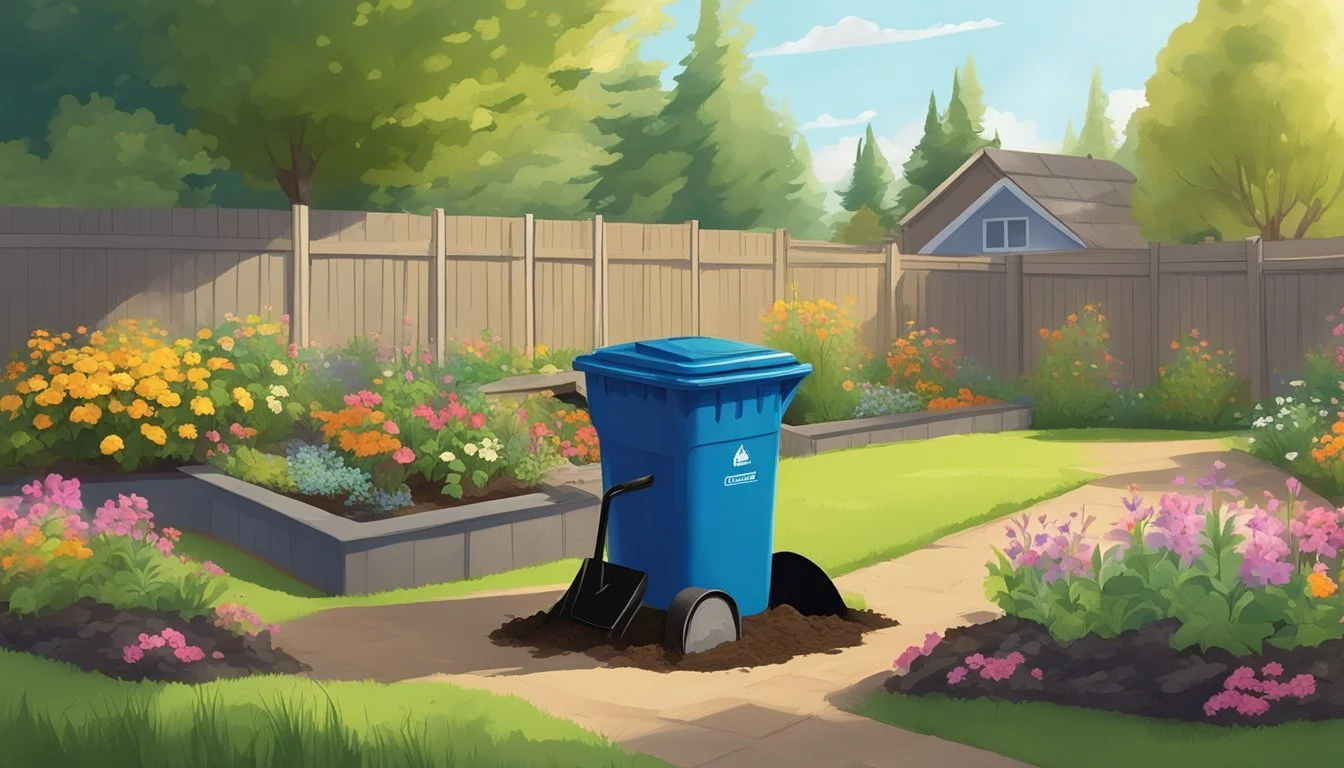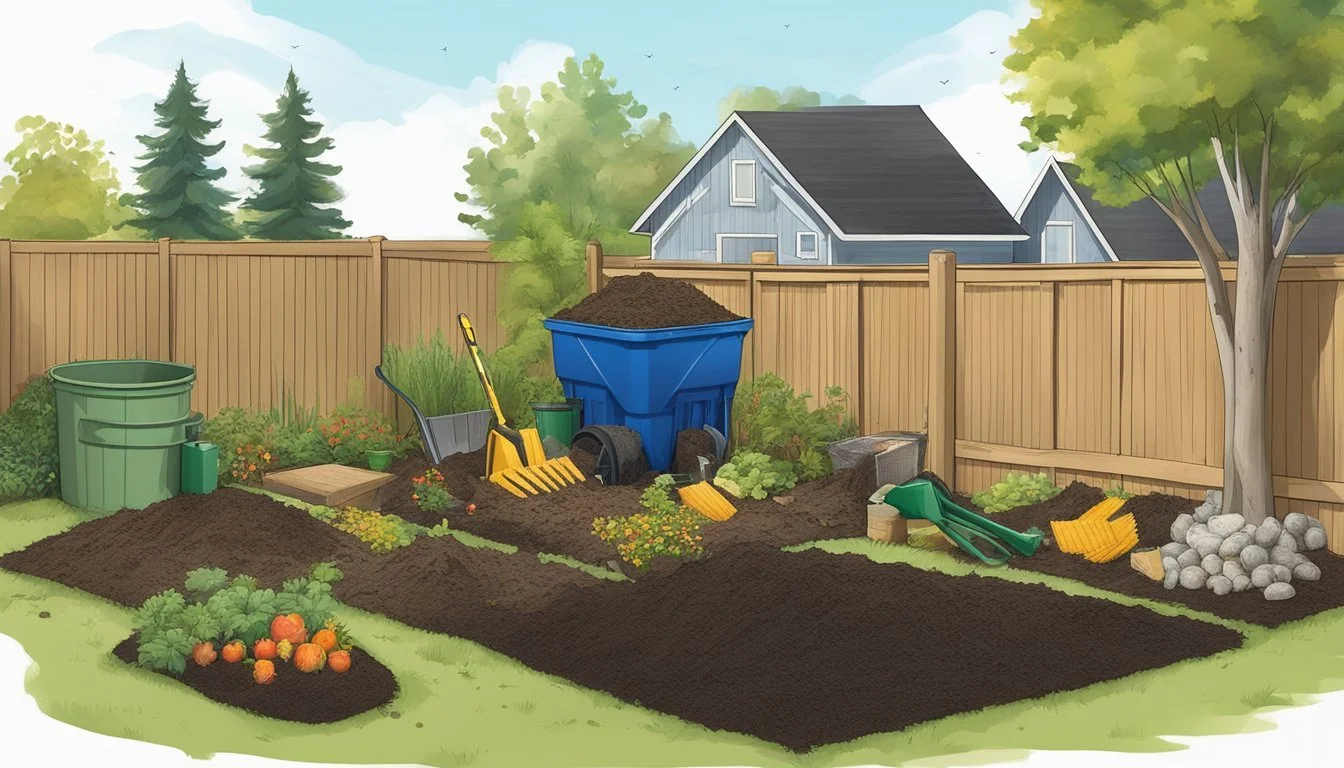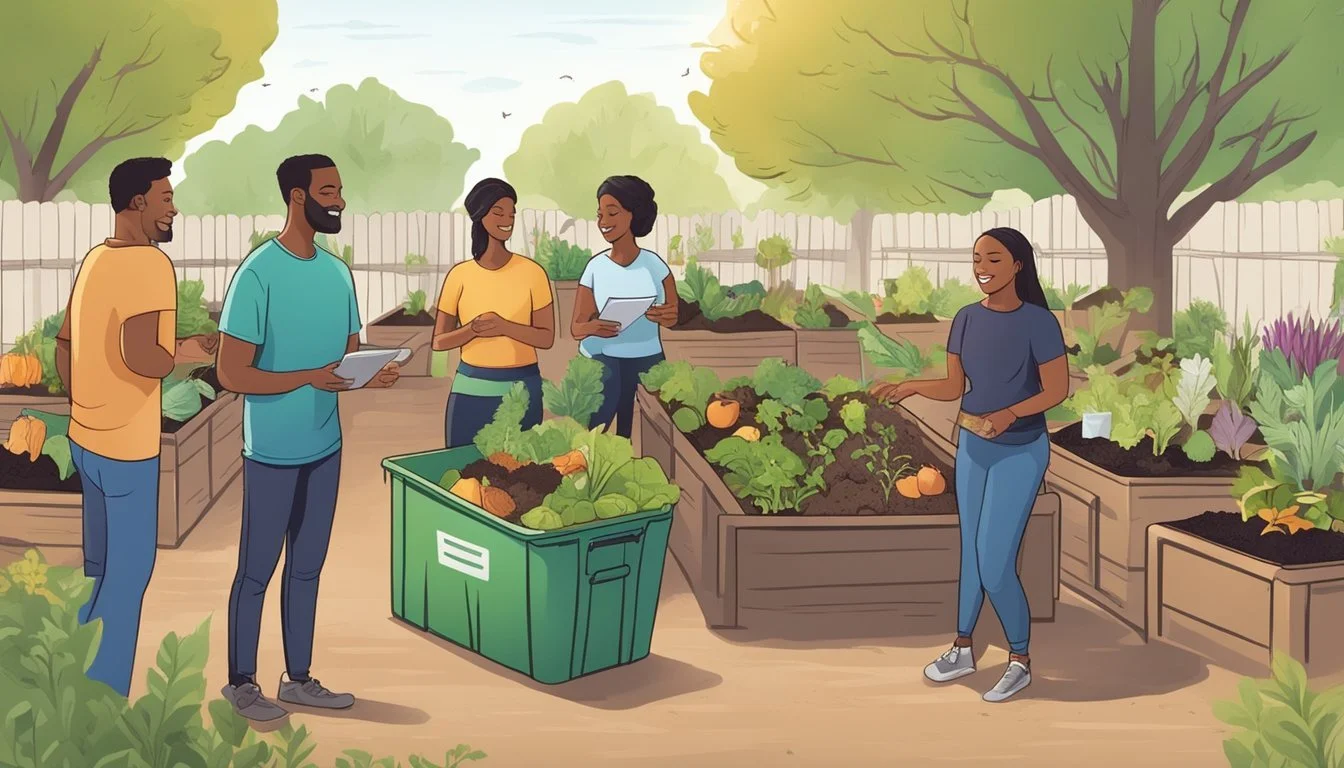Guide to Composting in Spokane Valley, WA
Essential Tips for Local Residents
Composting in Spokane Valley represents an eco-friendly effort to reduce waste and enhance garden soil quality. Local residents can engage in this sustainable practice by transforming their kitchen scraps and yard debris into nutrient-rich organic matter. Spokane offers a variety of services that support composting, including optional curbside collections for yard waste and food scraps, with the aim of bolstering a comprehensive solid waste system.
Individuals new to composting can take advantage of resources that guide them through the process, from the basics of what can be composted to the benefits it provides, such as a nutrient-dense supplement for their gardens. Composting not only enriches the local environment but also contributes to a larger scale of waste reduction, aligning with Washington State's commitment to a closed-loop recycling system.
The City of Spokane and various local entities provide assistance and education on managing organic waste effectively. By participating in community composting initiatives or practicing home composting, Spokane Valley residents actively contribute to a greener future and foster a community dedicated to sustainable living practices.
Benefits of Composting
In Spokane Valley, WA, composting presents a dual advantage; it contributes positively to the environment and improves the health of the soil.
Environmental Advantages
Composting is a crucial process that reduces the impact on the environment by lessening the amount of solid waste in landfills. As organic material decomposes anaerobically in landfills, it releases methane, a potent greenhouse gas. By composting materials like food scraps and yard waste, methane emissions are significantly cut down. The Washington State Department of Ecology underscores the state's commitment to reducing landfill-disposed organic material by 75% by 2030, showing a sustained effort to reduce waste and protect the environment.
Improving Soil Health
One of the most significant advantages of composting is its ability to enhance soil health. Compost adds vital nutrients back into the soil, fostering nutrient-rich soil that supports plant growth. It improves the soil structure, increases its water retention ability, especially in sandy soils, and helps in loosening compacted clay soils. This enhancement in soil structure further reduces erosion and runoff. Spokane's solid waste system recognizes these benefits; the city's Master Composter/Recycler Program teaches residents to create black gold for their gardens, rich in nutrients and excellent for plant health.
Understanding the Basics of Composting
In Spokane Valley, WA, composting is an environmentally friendly way to recycle organic matter. It requires understanding the decomposition process and knowing which materials are suitable for the compost bin.
Decomposition Process
Composting relies on the natural breakdown of organic matter by micro-organisms and macro-organisms, transforming it into nutrient-rich soil. The process is facilitated by providing the right balance of green materials (such as vegetables) that are rich in nitrogen, and brown materials (like paper plates), which are high in carbon. Adequate moisture, aeration, and time allow these organisms to work effectively.
What Can and Cannot be Composted
Can Be Composted:
Vegetables: All types of vegetable scraps are compostable.
Organic Matter: Includes leaves, twigs, and grass clippings.
Paper Plates: If not coated with plastic, paper plates can be included.
Cannot Be Composted:
Oils: Cooking oils can attract pests and disrupt the decomposition process.
Meat: Meat products can emit an odor and attract unwanted wildlife.
Dairy: Like meat, dairy products can spoil and attract pests.
By following these guidelines, Spokane Valley residents can successfully create compost, which enriches soil and promotes plant growth while reducing waste.
Setting Up a Compost System at Home
Creating a compost system in Spokane Valley requires careful planning, an understanding of composting fundamentals, and the right conditions to transform organic material into nutrient-rich soil. Here are key steps for establishing a successful home composting system.
Choosing the Right Location
The location of a compost system is crucial for its efficiency and functionality. One should look for a level spot with good drainage to prevent waterlogging. The chosen space should have partial sunlight to help maintain optimal temperatures but also some shade to prevent the compost from drying out. Keeping the bin or pile close to the garden minimizes the effort needed to transport compost to where it will be used.
Selecting a Compost Bin or Container
A variety of compost bins or containers are available, or one can create their own using repurposed materials. The container should have adequate ventilation to allow for air flow, which is vital for the composting process. One can choose from a simple pile, a stationary bin, or a tumbling bin, depending on their composting goals and the amount of space available. For residents of Spokane Valley, the bin should also be robust enough to deter pests.
Balancing Greens and Browns
For a compost system to thrive, it needs the right balance of greens, which are nitrogen-rich materials like food waste, grass clippings, and coffee grounds, and browns, which provide carbon and include leaves, straw, and branches. A general rule is to maintain a ratio of about 3:1 of browns to greens.
Greens: Food scraps (excluding meat and dairy), grass, coffee grounds
Browns: Dry leaves, paper, straw, wood chips
By layering greens and browns, one creates the conditions needed for microorganisms to break down organic matter effectively. Periodic turning of the pile will aid in aeration and speed up the composting process.
Composting Techniques
Composting techniques in Spokane Valley, WA, cater to diverse preferences and environmental conditions. Residents have the advantage of selecting a method that matches their availability of space, time, and materials.
Traditional Composting
Traditional composting is a straightforward process that involves layering organic materials to create a nutrient-rich fertilizer. For successful composting, one should maintain a balanced mix of 'greens' such as vegetable scraps, and 'browns' like dried leaves. The composting process is expedited by regularly turning the pile to enhance aeration and accelerate decomposition.
Vermicomposting
Vermicomposting utilizes the natural tendency of worms, particularly red wigglers, to consume and break down organic waste. This method is ideal for indoor composting or areas with limited space. A worm composting system can be set up by preparing a suitable bin, bedding, adequate moisture, and feeding suitable organic waste to the worms.
Bokashi Fermentation
Bokashi fermentation involves an anaerobic process that ferments organic waste in a sealed container using a specific inoculant. This method is quick, odorless, and can even process dairy and meat scraps, unlike traditional composting methods. Essential for Bokashi is the maintenance of an airtight environment to prevent putrefaction and ensure a productive fermentation phase.
Maintaining Your Compost
Maintaining a healthy compost system in Spokane Valley requires attention to aeration, moisture control, and temperature monitoring. Proper maintenance ensures efficient decomposition and high-quality compost.
Aeration and Moisture Control
A compost pile needs to be turned regularly to introduce oxygen, which is vital for the composting process. A lack of aeration can lead to anaerobic conditions, which slow down the decomposition process and can produce unwanted odors. One should aim to turn their pile every 1-2 weeks. Moisture is equally important; the pile should be as wet as a wrung-out sponge. If the compost is too dry, microbial activity can stall, whereas too much moisture can cause anaerobic conditions. Add dry materials like leaves or straw to soak up excess water, or green materials like food scraps if the pile is too dry.
Aeration:
Turn pile every 1-2 weeks.
If odors arise, increase turning frequency.
Moisture:
Should have the consistency of a wrung-out sponge.
Adjust wet and dry materials as necessary.
Monitoring Compost Temperature
The temperature of a compost pile is a good indicator of microbial activity. Ideally, the pile should reach temperatures between 135°F to 160°F. Within this range, microorganisms are actively breaking down organic matter and unwanted seeds and pathogens should be killed. To monitor, insert a compost thermometer into the center of the pile. If temperatures fluctuate outside of this range, adjusting the balance of green and brown materials, or increasing aeration, might be necessary.
Temperature Range for Optimal Composting:
Ideal: 135°F to 160°F
Use a compost thermometer to monitor.
Using Your Compost
Compost enriches the soil, providing a nutrient-rich environment for plants to thrive. It is a natural fertilizer that can be used in various ways in the outdoor space to promote healthy plant growth.
In Your Garden
In the garden, compost can be worked into the soil at the beginning of the planting season. This amendment provides a wealth of microorganisms that will support the growth of vegetables and flowers. It increases the soil's ability to hold moisture and nutrients, which are gradually released to the roots of garden plants, such as tomatoes and peppers, enhancing their growth and health.
As a Potting Mix
Compost can be an integral component of a potting mix for container gardening. To create a nutrient-dense potting mix, blend equal parts compost, perlite, and potting soil. This mixture provides a balanced medium for potted plants, ensuring they receive essential nutrients to promote lush foliage and abundant blooms. It's especially useful for potted flowers and small shrubs that require enriched soil to flourish.
Top-Dressing Lawns
Compost serves as an excellent top-dressing for lawns. Apply a thin layer of fine, screened compost over the grass in the spring or fall. This top-dressing can help to rejuvenate tired lawns by adding nutrients, which promotes a thicker, greener turf. Additionally, compost top-dressing can aid in repairing bare patches and improving soil structure, fostering the overall health of the lawn.
Community Involvement and Education
Community involvement in Spokane Valley, WA, is crucial for promoting sustainable practices such as composting. Programs and events focused on education and outreach empower residents to participate in environmental stewardship.
Participation in Spokane's Master Composter/Recycler Program
The Master Composter/Recycler Program in Spokane County is a cornerstone of community education and outreach. This initiative offers in-depth training on composting and recycling concepts, allowing individuals to become proficient in reducing waste at home. Graduates often contribute their newly gained expertise to the community as volunteers.
Spokane's Spring Compost Fair
Annually, the Spring Compost Fair presents a hands-on opportunity for residents to learn about composting. This event features demonstrations and provides educational materials to encourage proper household hazardous waste disposal and eco-friendly practices. Attendees may also receive compost bins, promoting active participation in home composting.
Volunteering for Sustainable Practices
Volunteering in Spokane's composting initiatives is an effective way to support community education in sustainability. Individuals assist in outreach programs that teach environmentally sound practices. They play a pivotal role in shift ing Spokane towards a greener and more sustainable future by fostering community participation in efforts like the Master Composter/Recycler program and events like the Spring Compost Fair.
Advanced Composting Topics
In the realm of composting within Spokane Valley, WA, advanced techniques can resolve issues and elevate soil fertility. The following insights cater to enthusiasts seeking to optimize their composting outcomes.
Troubleshooting Common Issues
When composters encounter problems such as foul odors or slow decomposition, they should assess the balance of green (nitrogen-rich) and brown (carbon-rich) materials. Too much green material, like yard trimmings, can cause unpleasant smells; increasing the brown material ratio, such as dry leaves or sawdust, can mitigate this. Conversely, a lack of green materials may slow decomposition, which can be invigorated by adding coffee grounds or fruit scraps.
Enhancing Nutrient Content
For a nutrient-rich compost, one must focus on the diversity of the input materials. Incorporating sources of iron like used tea bags can benefit the compost's mineral composition. Additionally, to boost nutrient content further, experiment with adding rock phosphate or bone meal to provide essential minerals, fostering an environment conducive to healthy plant growth.

